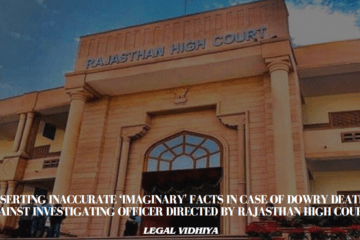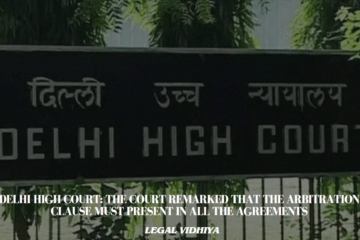
The Reserve Bank of India (Frauds Classification and Reporting by Commercial Banks and Select FIs) Directions of 2016 (master circular) pertaining to bank fraud [SS Hemani v. RBI & Ors.] was clarified on Tuesday by the Bombay High Court that it has not stayed its operation.
In a nine-page order that was made public today, Justices GS Patel and Neela Gokhale of a division bench provided the clarification.
The division bench had instructed the banks not to take any further action based on the master circular yesterday during the hearing. According to reports, the Court had postponed the implementation of the circular until it finally heard the petitions challenging it.
However, the division bench made it clear in the order that was released today that it has not stayed the Master Circular’s actual operation.
The Court made it clear that its order on the master circular only applies to actions by banks or their internal committees that contradict a Supreme Court decision on the matter.
“We have not halted the Master Circular’s operation (which has not been overturned by the Supreme Court’s decision). The Master Circular has only had certain requirements read into it by the Supreme Court. The High Court stated, “Therefore, it follows that actions under the Master Circular consistent with the judgment and decision of the Supreme Court may undoubtedly proceed.”
This order will continue until September 11, 2023, the Court added.
Specifically, the division bench suggested what banks could do while petitions challenging the RBI Circular were pending.
All banks were given permission by the Court to revoke, withdraw, or cancel any orders that had been issued under the Master Circular and may be out of line with the Supreme Court’s decision.
In addition, the banks were permitted to restart the procedure in accordance with the Master Circular while making certain that it is in accordance with the decision made by the Supreme Court.
Since first information reports (FIRs) do not result from inquiries carried out in accordance with the Master Circular, the Court also permitted investigating agencies to continue with ongoing investigations against the petitioners.
“Even if the charge is one of fraud accounts, the Supreme Court decision makes it abundantly clear that no hearing is required prior to the filing of FIRs. To put it another way, the investigating agencies are free to file FIRs and proceed with them without considering any findings made by the bank in accordance with the particular Master Circular. In addition, the Court stated, “All private party legal remedies remain unaffected by this order and may be pursued.”
The challenged circular had allowed banks to fully utilize the Central Fraud Registry for timely fraud risk identification, control, reporting, and mitigation.
There were two provisions in the circular:
It is the responsibility of the bank that has identified an account as fraudulent to notify other banks by submitting a report to the Central Repository of Information on Large Credits platform.
If a bank decides to immediately label the account a fraud, it must notify the RBI of the fraud within 21 days and any investigating agency.
The petitioners in the High Court had argued that borrowers had no right to a hearing before the circular classified their accounts as fraudulent.
The Court was informed that the banks were not, in fact, giving the borrowers a hearing or providing them with copies of the relied-upon information before taking any further action.
The matter has been put on hold until the final hearing on September 7-8.
Name -Sandeep K. Pareek, BALLB(2nd sem.), RNB Global University intern under legal vidhiya




0 Comments